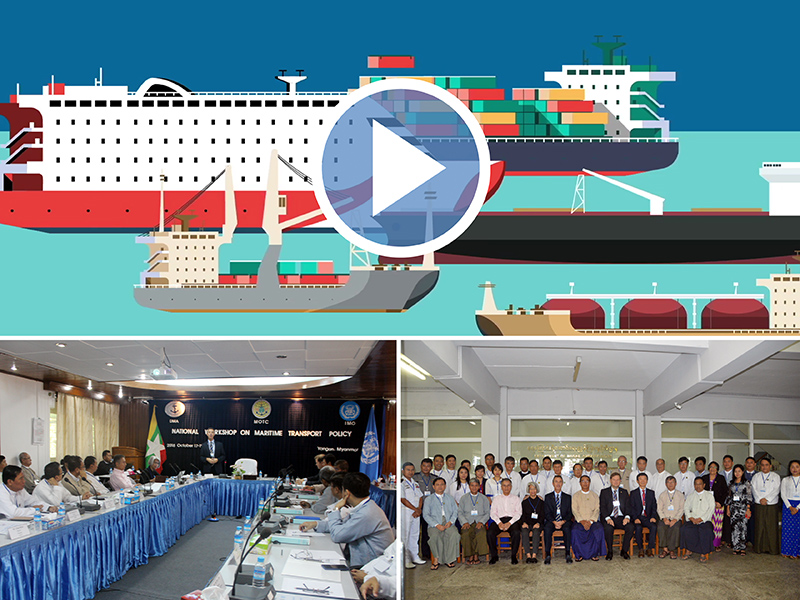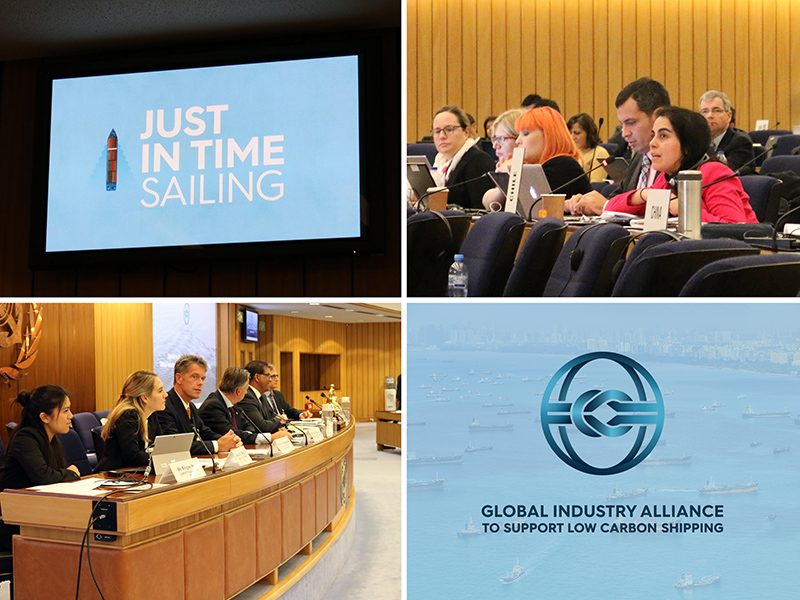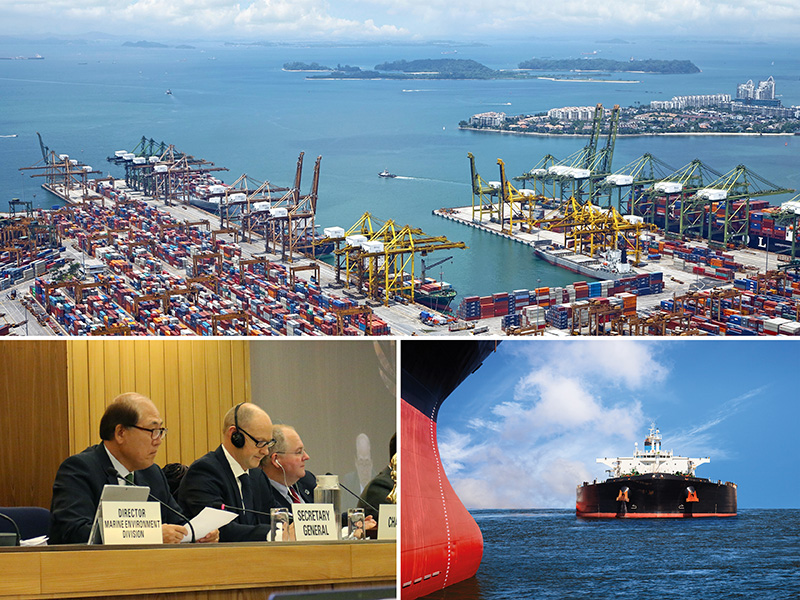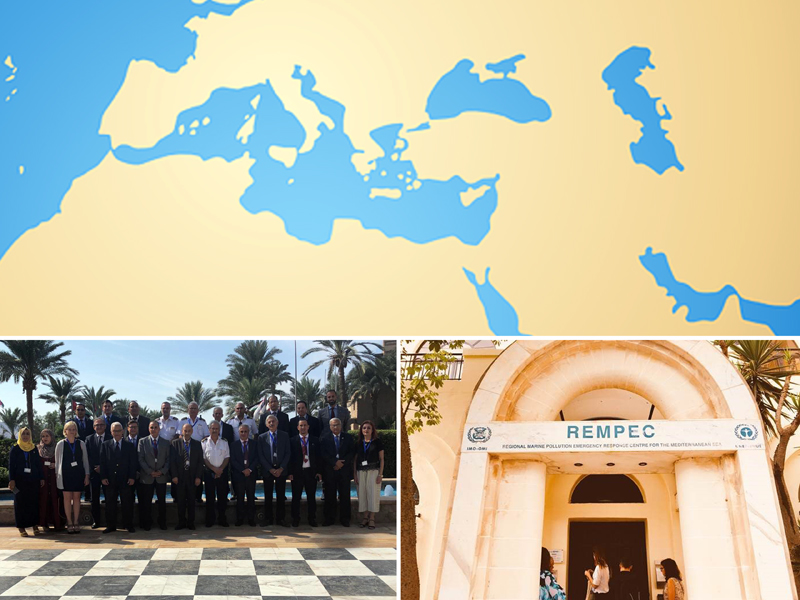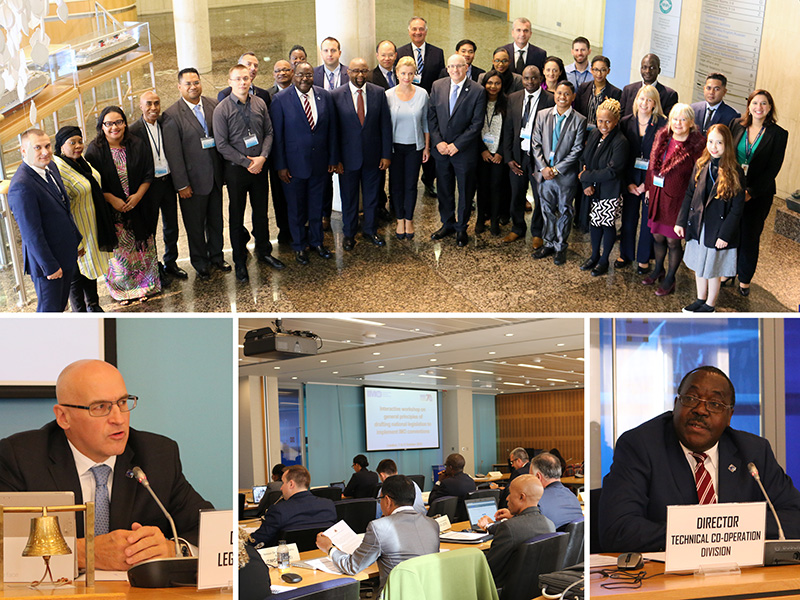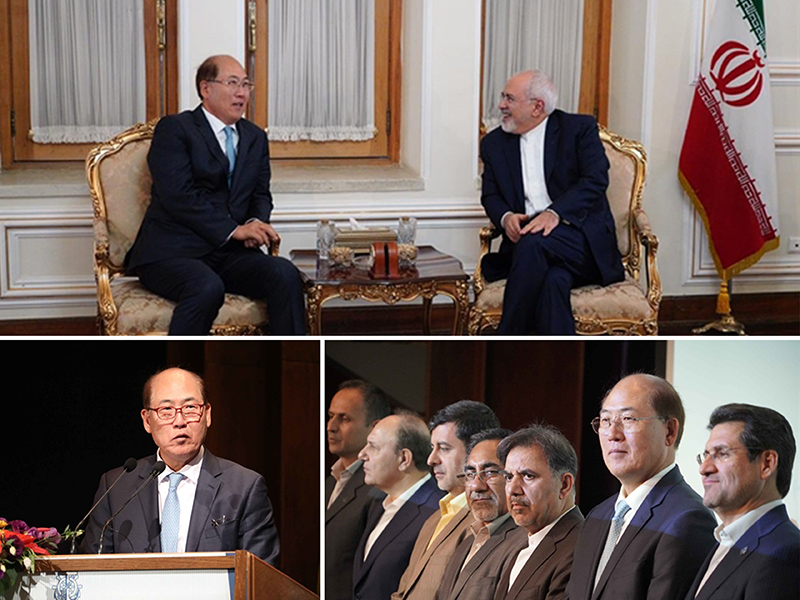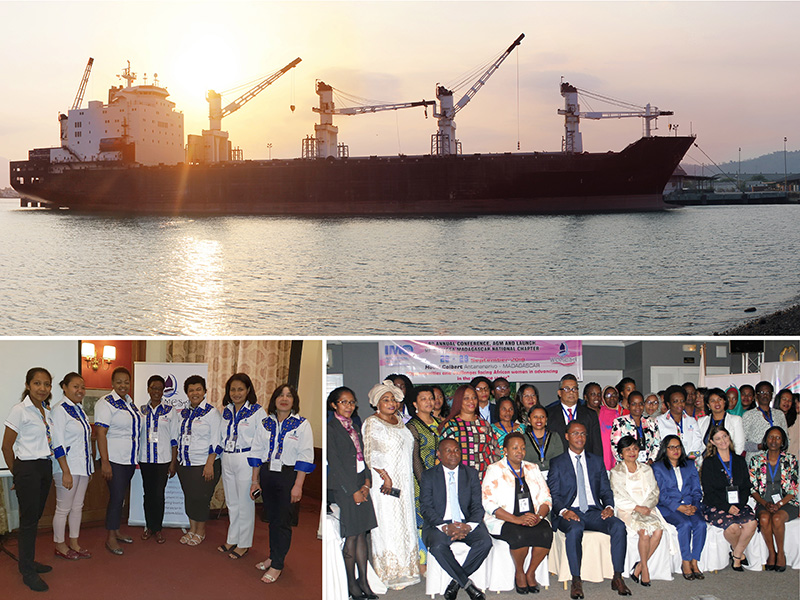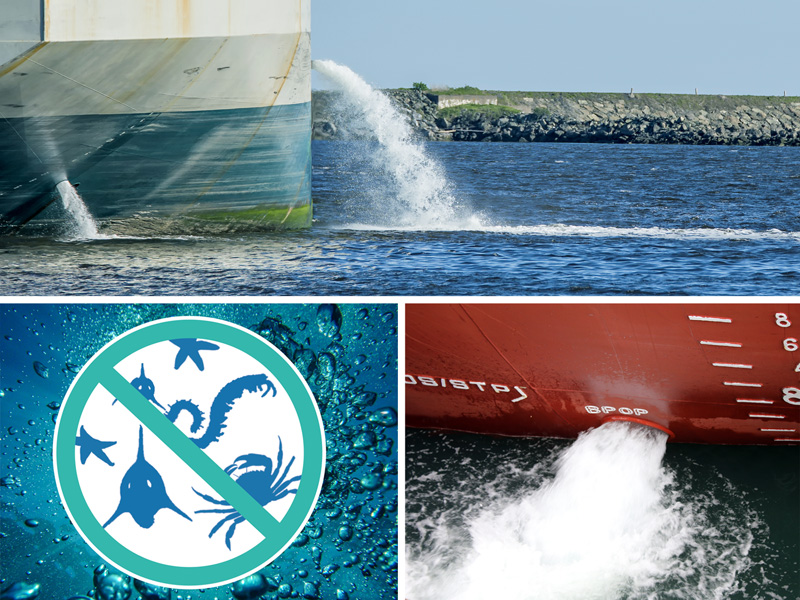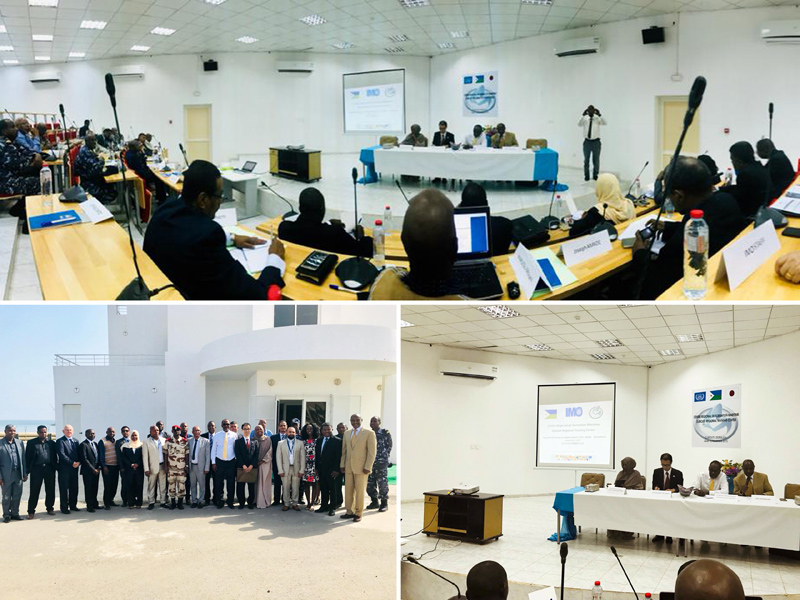Whats New 2018
Myanmar officials trained in forming maritime transport policy
Training
in how to develop a National Maritime Transport Policy (NMPT) is underway for
officials from various government entities in Yangon, Myanmar (17-19 October).
The concept is being promoted by IMO as a good governance practice to guide
planning, decision making and legislation in the maritime sector, and as a key
driver for a country's sustainable development. Participants
from various ministries, departments, agencies and other stakeholders whose
mandate and activities impact on the maritime sector are being trained on
formulating such policies, with emphasis on the need for an integrated and
coordinated approach. more...
Identifying barriers to cutting emissions through just-in-time operations
Reducing the amount of time ships spend waiting outside port and at anchor could significantly reduce ship emissions, according to studies carried out by members of the IMO GloMEEP Global Industry Alliance (GIA). A new GIA video explaining the Just-In-Time concept was shown at IMO Headquarters, during a presentation to delegates (15 October). more...
Pushing forward with tackling greenhouse gas emissions
An intersessional working group to develop a programme of follow-up actions to IMO’s Initial strategy on reducing greenhouse gas emissions from ships opened at IMO Headquarters (15 October). The initial strategy, adopted in April this year, sets out a vision to continue to reduce GHG emissions from international shipping and phase them out, as soon as possible - in this century. The strategy provides clear direction to the shipping sector and its partners to stimulate investment in developing low- and zero-carbon fuels and innovative energy-efficient technologies. more...
Cooperation for sustainable shipping in the Mediterranean
REMPEC, the IMO-administered pollution emergency response centre in the Mediterranean, has agreed to coordinate its 2019 technical assistance activities with the European Maritime Safety Agency (EMSA), at a meeting in Jordan of the EU-funded SAFEMED IV project. Following presentations by project beneficiaries highlighting their technical assistance needs, EMSA agreed on project activities until the end of 2019. REMPEC will coordinate its own activities in the Mediterranean with EMSA’s actions -on port reception facilities, ship emissions and national ballast water management strategies, among others. more...
IMO treaties need national legislation
An important strategic objective for IMO is improve the way
its treaties and conventions are implemented, at the national level. Domestic
implementing legislation is required but audits carried out by IMO reveal that,
in many countries, it either doesn’t exist or is incomplete. To address this need, IMO offers an intensive 5-day workshop
for lawyers and legislative drafters. It provides them with the tools they need
to understand IMO treaties and how they are developed and adopted. The most
recent such workshop was held at IMO Headquarters (1-5 October). more...
Secretary-General commemorates Sanchi victims
IMO Secretary-General Kitack Lim visited the Islamic Republic of Iran to participate in the country's national celebration of World Maritime Day (8 September). The Secretary-General met the Minister of Foreign Affairs, Dr. Mohammad Javad Zarif, and participated in a ceremony to commemorate seafarers who lost their lives aboard the Iranian-owned oil tanker Sanchi earlier this year. more...
Empowering women in the African maritime sector
Africa's Blue Economy, job opportunities, mentorship, marine environmental protection and addressing gender-based violence, were at the core of the 9th regional conference of the Association of Women Managers in the Maritime Sector in Eastern and Southern Africa (WOMESA) held in Antananarivo, Madagascar, (26-28 September 2018). Under the theme "Opportunities and challenges facing African women in advancing the maritime sector", some 60 participants from the region discussed and exchanged ideas on the empowerment of women in the African maritime sector. more...
Focus on Ballast Water Management implementation
The IMO treaty countering the threat to marine ecosystems by potentially invasive species transported in ships' ballast water entered into force globally in September 2017. One year on, the number of ratifying States stands at 77, representing just over 77% of world gross tonnage, and the issue of implementing the regulations is in the spotlight. more...
Training to implement the Djibouti Code of Conduct
The Code developed and adopted by countries in the Western Indian Ocean and Gulf of Aden – the Jeddah Amendment to the Djibouti Code of Conduct – has been a key factor in repressing piracy and armed robbery against ships operating in that region. It covers a range of illicit activities, including piracy, arms trafficking, trafficking in narcotics, illegal trade in wildlife, illegal oil bunkering, crude oil theft, human trafficking, human smuggling, and illegal dumping of toxic waste. To support National Focus Points involved in implementing the Code's provisions, a training workshop was held at the Djibouti Regional Training Centre (DRTC), Djibouti (24-26 September). more...
